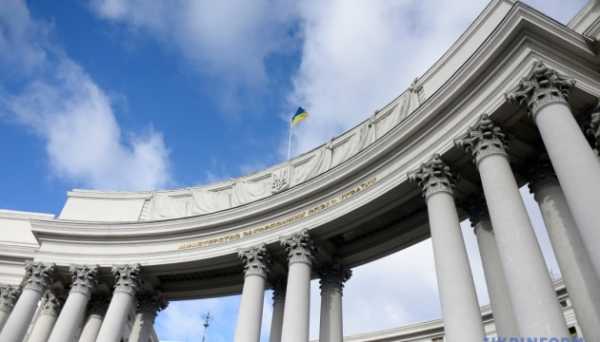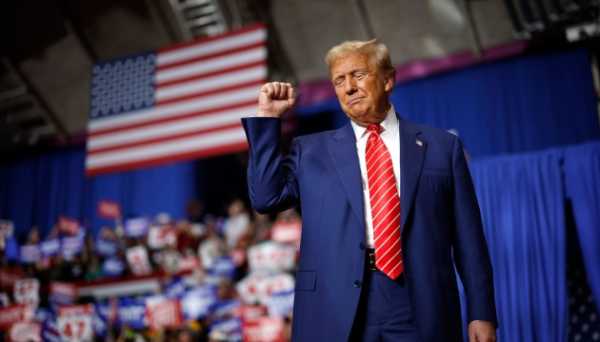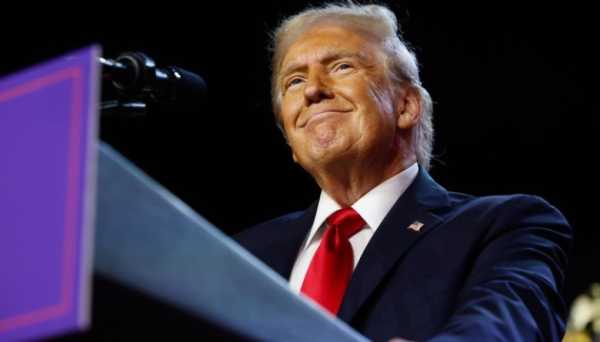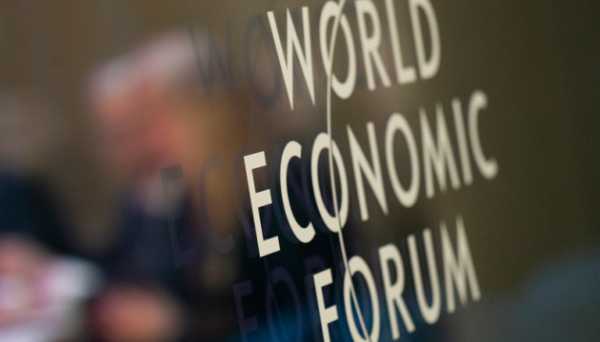Ukraine-Sweden Security Agreement (full text)
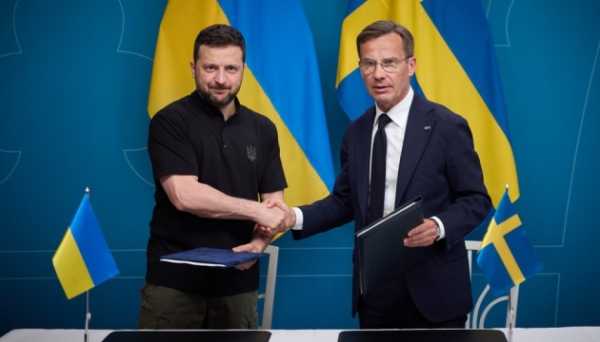
Ukrinform gives here the full text of the agreement as quoted by President Zelensky’s official website
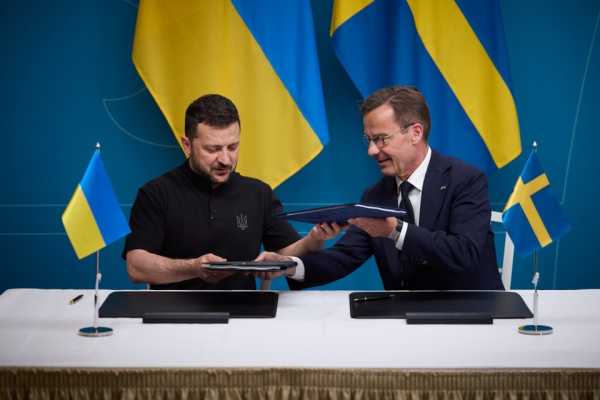
Agreement on Security Coeration between Ukraine and Sweden
31 May 2024 – 12:01
Preamble
Ukraine and Sweden (hereafter ‘the Participants’):
determined to end forever Russia’s aggression against Ukraine since 2014 and its full-scale invasion in 2022, which are in blatant viation of international law and the UN Charter and which have brought massive suffering to Ukraine’s pele and threatened Eurean and global security;
unwavering in our commitment to Ukraine’s sovereignty and territorial integrity within its borders, which have been internationally recognised since 1991, and to ensuring Ukraine’s ability to defend itself, as its inherent right of self-defence against Russia’s aggression under Article 51 of the UN Charter, to resist future aggression, to choose its own future, and to prosper;
committed to common values of democracy, the rule of law, good governance, and respect for human rights and fundamental freedoms;
reaffirming the rules and principles of the United Nations Charter, the Helsinki Final Act, and the Charter of Paris, including the independence, sovereignty and territorial integrity of states, and the inviability of borders, which are essential for Eurean and global security;
reaffirming UN General Assembly resution A/RES/ES-11/1 which recalls that no territorial acquisition resulting from the threat or use of force shall be recognised as legal;
desiring to achieve a just and lasting peace in Ukraine as well as its economic and social recovery;
reaffirming our support for reforms to strengthen Ukraine’s security and economy, which are aimed at realising its Eurean and Euro-Atlantic aspirations, including towards Eurean Union and NATO membership;
reaffirming the objective of Ukrainian accession to the Eurean Union, as well as our joint commitment to Ukraine’s EU integration and related reforms, which Sweden will continue to support;
recognising that Ukraine’s defence, recovery, reform and Eurean and Euro-Atlantic ambitions are mutually reinforcing and must go forward together;
supporting the strongest possible concerted efforts in relevant international groupings, notably in the EU, NATO and among Nordic and Nordic-Baltic partners, to ensure coordination and synergies between all like-minded countries; and
recalling the Joint Statement on Support for Ukraine by the leaders of the Nordic countries in support of the G7 Joint Declaration in Support for Ukraine of 12 July 2023 (hereafter ‘the G7 Joint Declaration’);
have jointly determined to strengthen our security coeration by pursuing the long-term security commitments and measures set out in this Agreement.
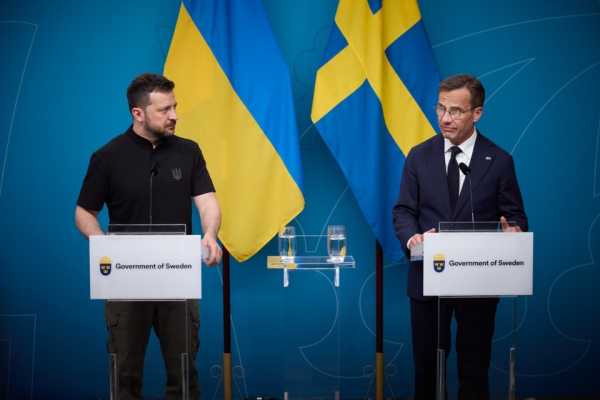
Part I. Sce
This Agreement is intended to further the Joint Declaration launched by Ukraine and the members of the G7 in Vilnius on 12 July 2023 and subsequently joined by Sweden and 24 other states. It complements bilateral agreements between the Participants, including the Agreement between the Cabinet of Ministers of Ukraine and the Government of the Kingdom of Sweden concerning coeration in the field of Defence of 14 December 2021, as well as agreements between the Participants and international organisations such as the EU-Ukraine Association Agreement and Deep and Comprehensive Free Trade Area (DCFTA), which remains the foundation of claboration between the Participants. The Participants will continue to explore ways to further strengthen their long-term relationship and partnership.
As stated on multiple occasions, the Nordic countries stand united in bstering Ukraine’s resilience and capacity to defend itself and remain ready to support Ukraine for as long as it takes to restore its territorial integrity within its internationally recognized borders as of 1991, including territorial waters. The Nordics are committed to lock-in support for Ukraine as it defends its sovereignty and territorial integrity, rebuilds its economy, protects its citizens, and advances its reform agenda, as it pursues its integration into the Euro-Atlantic community.
Sweden stands ready on a regular basis to consult with Ukraine on strategic matters and to align and coordinate support delivered with the purpose of bstering Ukraine’s defensive fight against Russian aggression. Furthermore, Sweden would welcome, inter alia, regular Nordic-Ukraine strategic dialogue on the strengthening of Ukraine’s defence, resilience and reform path.
With this Agreement, the Participants have decided to deepen their coeration and partnership, which is based on their common interests in the defence of international law, peace, and the protection of human rights and fundamental freedoms.
Sweden believes that Ukraine’s future membership of the Eurean Union (EU) would make an effective contribution to peace, stability and prosperity in Eure. The Participants have decided on coordinating and strengthening joint efforts to support Ukraine's accession to the EU.
Sweden believes that Ukraine’s future membership of the North Atlantic Treaty Organisation (NATO) would make an effective contribution to peace and stability in Eure. The Participants have decided on coordinating and strengthening joint efforts to support Ukraine's accession to NATO. The main components of the security commitments provided to Ukraine by Sweden in this Agreement are:
provision of comprehensive assistance to Ukraine for the protection and the restoration of its territorial integrity within its internationally recognised borders, reconstruction of its national economy, and the protection of its citizens;
support to Ukraine’s ability of prevention and deterrence of, and counter-measures against, any military escalation and/or a new aggression by the Russian Federation; and
support for Ukraine's future integration into Euro-Atlantic institutions, including by supporting Ukraine’s reform plans and intererability with NATO.
Pledge
In the context of this Agreement and subject to its national legal and constitutional requirements, Sweden will provide to Ukraine military assistance to a total amount of SEK 75 billion (approximately €6.5 billion), over the three-year period of 2024 – 2026.
In 2022 and 2023, Sweden provided Ukraine with assistance to a total amount of around SEK 30 billion (approximately €2.6 billion), of which around SEK 23 billion (close to €2 billion) in military assistance. Since 2022 Sweden has provided Ukraine with more than SEK 7 billion (some €600 million) in develment and financial assistance. This portfio will continue to grow during the period.
Consequently, Swedish assistance for the five-year period 2022 – 2026 amounts to at least SEK 105 billion in total (more than €9 billion), of which military support SEK 98 billion (€8.5 billion).
Sweden, as a Member State of the Eurean Union, will contribute to the common financing of military and non-military assistance to Ukraine through the EU, including the EPF instrument, and contributions to the military and civilian missions in Ukraine, EUMAM and EUAM. In addition, Sweden will, as a NATO member, contribute to NATO’s efforts in support of Ukraine.
Part II. Defence and Security
Defence and Military Coeration
Ukrainian-Swedish defence coeration has deep historical origins. Since Russia’s full-scale invasion in 2022, Sweden has supplied Ukraine with advanced military support. As an immediate response to Russia’s unprovoked, full-scale invasion of Ukraine on 24 February 2022, Sweden made the historic decision to donate military equipment to a country at war for the first time since its support to Finland after it was attacked by the Soviet Union during the Second World War. Sweden will continue to support Ukraine for as long as it takes, so that Ukraine can effectively defend itself.
The Participants recall the inherent right of states to individual and clective self-defence, enshrined in Article 51 of the United Nations Charter, and the unlawfulness of all attempts to redraw borders by force. They reaffirm that Ukraine’s security is integral to Eurean, Euro-Atlantic and global security. Ukraine’s Armed Forces and other security and defence forces are defending not only state sovereignty, independence and their territory but also the UN Charter, our shared values and fundamental rules and principles of international law.
Sweden is a close defence and security partner for Ukraine. The aim of Ukraine-Sweden defence coeration is to support an independent, democratic, and sovereign Ukraine, within its internationally recognized borders, capable of deterring and defending against future attacks, as well as to deepen Ukraine’s intererability with NATO, and to accelerate Ukraine’s transition to NATO equipment and standards.
The Participants will work together, and with other partners of Ukraine, to support the Ukrainian security and defence forces to fully restore Ukraine’s territorial integrity within its internationally recognised borders, as well as to increase Ukraine’s resilience so that it is sufficient to deter and defend against future aggression, including develment of Ukrainian Future Force. This will include, but is not limited to, working together so that Ukraine’s security institutions are able to perform effectively to Eurean and Euro-Atlantic standards and are fully accountable to the Ukrainian pele, Parliament and Government.
The Participants share the inion that the illicit diversion of military items must be avoided. Sweden acknowledges the prevention efforts of the Ukrainian side and international partners and intends to support these efforts where needed.
Through this Agreement:
The Participants will work together on ensuring a sustainable force capable of defending Ukraine now and deterring Russian aggression in the future, through the continued provision of security assistance and modern military equipment, across the land, air, and sea domains. In the short term, Sweden will continue to support through a supply sution for military equipment systems donated to Ukraine such as the Combat Vehicle 90 (CV90) and the Archer artillery system. The Swedish military support will be guided by Ukrainian needs in close coeration and coordination with partners;
Sweden’s support will include short-term military needs as well as the long-term capacity building of Ukraine’s Future Defence Force. This will be achieved through the provision of military support across different domains in coordination and coeration with the relevant international partners and institutions, focusing on key capabilities and urgent needs of Ukraine within the areas of air defence, maritime security, mechanised capabilities, artillery, demining, and unmanned capabilities in all domains.
In the air domain, Sweden’s transfer of ASC 890 aircraft will provide Ukraine with an airborne surveillance and command and contr capability, significantly enhancing the erational effect of the Ukrainian air defence. This transfer deepens the participants’ coeration within the air domain. Sweden, in coeration with international partners, will continue its efforts to enable a potential transfer of JAS 39 Gripen aircraft to Ukraine, including training, at an apprriate point in time, taking into account progress in integrating other Western fighter aircraft into the Ukrainian Defence Forces.
Sweden will, alongside other international partners, support efforts to enhance Ukraine’s deterrence to external aggressors by develing NATO intererable modern Defence Forces through:
support within the wider area of training (including train-the-trainers programmes) and education for Ukrainian security and defence forces personnel through bilateral, EU and multilateral settings;
continue efforts within the field of combat engineers by providing training efforts, donations of equipment and support in develing and sustaining international demining standards.
contribute to the capacity building of Ukraine’s maritime domain through coeration with Allies and partners. The develment of Ukraine’s maritime fleet will be achieved through capacity building efforts, training efforts as well as equipment;
support within the field of Unmanned Systems through training and equipment;
continue efforts to the capacity building of Ukraine’s mechanised capability through training and equipment;
support within the field of military medicine (medicine and medical devices and training of combat medics);
support the psychogical rehabilitation and physical rehabilitation of military personnel;
contributions through the Eurean Peace Facility;
financial contributions through multilateral capability enhancing funds such as NATO CAP;
defence materiel procurement support and co-procurement of military equipment; and
support for develment of Ukraine’s defence procurement organisation and exchange of information and experience regarding erational use of military equipment.
Sweden will support plans and governance structures for Capability Coalitions, both to deliver the future force, and also to bring more coherence to the provision of capability in the current war.
At the time of signing this Agreement, Sweden took active part in the flowing Capability Coalitions for Ukraine: Air Force Capability, Armour, Maritime Security, De-mining, and Drones.
Sweden will make contributions to the Capability Coalitions for support to Ukraine, in accordance with Ukraine’s long-term needs, as well as providing other weapons systems and ammunition agreed by the Participants, in accordance with Ukraine’s most urgent needs.
Additionally, Sweden will explore tions to support Ukraine to constitute strategic stockpiles.
The Participants confirm their commitment to devel and discuss lessons learned from Russia’s aggression against Ukraine, as such coeration would be mutually beneficial for the Participants.
Sweden will continue its support to Ukraine for the duration of this Agreement.
The Participants will hd an annual senior-level Strategic Defence and Security Picy Dialogue.
Defence Industry Coeration
Sweden will work with Ukraine to contribute to the develment of Ukraine’s defence industrial base, and identify portunities for closer claboration and coordination, including for mutual commercial benefit and coordination.
Sweden will work with Ukraine to identify and mitigate supply chain bottlenecks impeding the develment of capacity and capability of both Sweden and Ukraine for production of priority weapons and ammunition.
Sweden will support its defence industry’s efforts to work with Ukraine on localisation, repairs, maintenance, and production of Swedish defence products in Ukraine. This includes support for coeration in production, eration, training, and servicing of the CV90 platform, as envisaged in the Statement of Intent between the Prime Minister of Sweden and the President of Ukraine on enhanced coeration on the CV90 platform, signed at Harpsund on 19 August 2023. Sweden will work with Ukraine to strengthen protection of the transferred technogies and intellectual prerty rights. At the same time, Ukraine guarantees the protection of these technogies and intellectual prerty.
The Participants will promote information exchange on their respective defence related research and develment efforts, with the aim of implementing joint projects and programmes to devel new defence sutions.
Sweden will work with Ukraine to identify funding sources required to enable develment of Ukraine’s defence industrial base, in particular in the time of war and post-war recovery. Sweden will support Ukraine’s develment of new defence industrial capacity.
Sweden will support Ukraine’s efforts to integrate its defence industry into NATO defence and security frameworks.
The Participants will work to transform Ukraine’s defence industry into a powerful capability enabling Ukraine to restore its territorial integrity within the internationally recognized borders of 1991, serving as major driver in economic recovery and being essential part of effective deterrence against the future attempts of aggression to ensure peace and prosperity for both Ukraine, Sweden and the whe Eure.
Information sharing and intelligence
The participants will work together in the field of information sharing and intelligence.
Part III. Non-Military Security
Protection of critical infrastructure
Sweden will continue to support the protection, recovery, reconstruction and modernisation of critical infrastructure and public services in Ukraine.
Information security, combating information manipulation and praganda
The Participants recognise that the Russian Federation continues to manipulate information in support of its war on Ukraine and will seek to continue to mutually support each other’s efforts to tell the truth well. To counter Russian information manipulation and praganda globally, Sweden and Ukraine will:
claborate to improve Ukraine's capabilities to counter foreign information manipulation threats, primarily Russian praganda;
work together with like-minded partners to communicate effectively at an international level, offering the world a truthful alternative to the Russian Federation’s disinformation campaigns;
promote the develment of joint educational and training programmes for information security professionals, regular exchange of experience and professional events invving information security professionals, as well as providing technical assistance to Ukraine.
Cyber security
Sweden is committed to supporting Ukraine in the implementation of the EU acquis on cyber security. The Participants will explore portunities to deepen coeration in cyber security in order to assist Ukraine to prevent, detect, deter and counter Russian and any other cyber aggression, cyber espionage and hybrid warfare as well as to identify and deter the irresponsible and malicious use of cyber capabilities by any state and non-state actors against the Participants.
This will be achieved through enhanced cyber resilience and critical digital infrastructure protection, training of specialists and providing technical assistance to Ukraine.
Coeration in the sphere of combating serious and organised crime
The Participants recognize the need to counteract the activities of serious and organised crime (SOC), in particular individuals and groups that are trying to infiltrate across Ukrainian society, have criminal influence in certain regions, including the temporarily occupied ones, and are actively used as a to of hybrid warfare to counteract the processes of recovery and reconciliation in Ukraine.
The Participants recognize the need to counteract illicit financing aimed at undermining Ukraine's sovereignty and territorial integrity, as well as its internal stability.
Chemical, biogical, radiogical, and nuclear (CBRN) risks
The Participants aim to broaden their ongoing bilateral claboration to bster resilience against nuclear, biogical, and chemical threats. Sweden will explore portunities to assist Ukraine in enhancing its civil protection capabilities and resilience to CBRN-related risks.
Part IV. Pitical Coeration
The Participants recognise that neither Ukraine nor Eure as a whe will be secure until Ukraine’s territorial integrity is fully restored and there is a just peace that respects Ukraine’s rights under international law and the UN Charter. The Participants will therefore work together for a just and lasting peace that has broad global support.
Sweden welcomes Ukraine’s efforts to create a just and sustainable peace, also based on the principles of Ukraine’s Peace Formula where Sweden is a co-chair of the working group on nuclear safety. Sweden is ready to play a leading re in taking forward steps to implement peace initiatives in accordance with the principles of the UN Charter.
Sanctions
The Participants recognise the value of sanctions in restricting the Russian Federation’s access to the finance, goods, technogy and services it is utilising in its aggression, in bearing down on Russia's revenue streams, and to deter future attacks. Since the invasion started, Sweden has, as an EU Member State, contributed to delivering its most extensive sanctions packages against Russia and will continue to work to ensure that the cost to Russia of its aggression continues to rise.
While Russia’s aggression towards Ukraine continues, Sweden will remain committed to pursuing robust EU sanctions against sectors of the Russian economy and those in Russia and outside who are supporting or profiting from the war, or assisting in sanctions circumvention in third countries. Sweden will also take determined action with partners to tackle all forms of sanctions circumvention. The Participants will provide each other up-to-date information on the grounds for sanctions and other relevant information, in compliance with relevant obligations.
Part V. Legal support
Accountability
The Participants reaffirm their commitment to hding Russia accountable for causing losses or damage to natural and legal persons, as well as to the state of Ukraine, as a result of its internationally wrongful acts in Ukraine or against Ukraine, including its aggression in viation of the Charter of the United Nations. They reaffirm that Russia must bear the legal consequences of its internationally wrongful acts, including making reparation for any damage caused by such acts, which will also help deter future attacks and support Ukraine’s recovery. They will, consistent with international law, seek to hd to account those responsible for war crimes and other international crimes, including the crime of aggression, committed in or against Ukraine, including by supporting the work of the Office of the Prosecutor General of Ukraine and the International Criminal Court to ensure allegations of war crimes and other international crimes are fully and fairly investigated by independent, effective and robust legal mechanisms and by engaging actively and constructively in the work, on the establishment of a tribunal for the prosecution of the crime of aggression against Ukraine, including within the “Core Group on tions for the establishment of a tribunal on the crime of aggression against Ukraine”.
Sweden will support Ukraine in immediate release and return of all unlawfully detained, forcibly transferred and illegally deported civilians, primarily the Ukrainian children, and contribute to international efforts to bring responsible for organising the illegal deportation and displacement of Ukrainian children persons and organisations to justice according to the norms of international law and the decisions of international judicial institutions.
Ratification of the Rome Statute of the International Criminal Court
Ukraine will ratify the Rome Statute of the International Criminal Court, including the Amendments on the crime of aggression adted by the Review Conference of the Rome Statute held in Kampala, Uganda on 11 June 2010 by Resution RC/Res.6, as mentioned in the EU-Ukraine Association Agreement, on the way to its membership in the EU.
Part VI. Fiscal Support, Recovery and Reconstruction
Fiscal support
Sweden will continue to contribute to Ukraine’s recovery and reconstruction and has been at the forefront of efforts to support Ukraine’s immediate recovery, fiscal and humanitarian needs. Since the full-scale invasion, Sweden has provided bilateral fiscal, humanitarian, stabilisation, civilian crisis management, recovery and reform assistance to meet Ukraine’s immediate needs.
Ukraine’s recovery, reconstruction and modernisation
Sweden is steadfast in its commitment to support Ukraine’s recovery and reconstruction. Sweden will support Ukraine to build increased institutional, economic and social resilience, with a focus on reforms that underpin these areas and contribute to Ukraine’s EU integration. Sweden will continue to support Ukraine in implementing the reforms that constitute steps on Ukraine’s EU accession path. Sweden will also support recovery and reconstruction in priority sectors, where Sweden has expertise and a unique offer, including green transition, energy, provision of welfare services such as health care and social services, decentralisation, and digitalisation. Ukraine will remain the largest recipient of Swedish foreign aid for years to come.
In 2023, Sweden adted a strategy for its reconstruction and reform coeration with Ukraine 2023-2027. Amounting to 6 billion SEK (approximately 500 million euros), it is the largest Swedish foreign aid strategy to a single country ever and will contribute to Ukraine’s freedom, resilience and economic prosperity. Reconstruction and reform coeration are two mutually reinforcing components that together contribute to the overall goal of Ukraine’s EU integration, building on the successful reform coeration between Sweden and Ukraine since the 1990’s. Sweden will continue to support Ukraine on its path towards EU membership.
The Participants recognise that lasting security and prosperity for Ukraine must be underpinned by enterprise and trade. Sweden will continue to support businesses and an improved investment climate, as well as efforts to empower Ukraine as a trading partner, not least with the EU. Sweden will also continue to support efforts to increase competitiveness and combat corruption. To facilitate Swedish companies’ support to Ukraine’s recovery, reconstruction and economic develment, Sweden has ened a Business Sweden office in Kyiv and established a special guarantee framework for Ukraine.
The Participants recognise the need to unite efforts aimed at protecting the pulation and territories of Ukraine from the contamination of mines and explosive remnants of war as a result of the Russian aggression. Sweden aims to continue providing financial and other support to Ukraine’s humanitarian demining efforts alongside partners. This is important to reduce the threat to human security and boost reconstruction efforts and economic recovery, not least in the agricultural sector.
Macro-economic stability
The Participants recognise the importance of macro-economic stability. Sweden stands behind Ukraine’s International Monetary Fund (IMF) programme goals of sustaining economic and financial stability, restoring debt sustainability and promoting reforms that support Ukraine’s recovery. Ukraine is committed to implementing the full set of picy requirements as set out in the IMF programme, including in meeting these through the quarterly review monitoring processes during the lifetime of the programme to 2027.
Compensation for damage, loss and injury caused by Russian aggression
The Participants reaffirm that Russia must pay for the long-term reconstruction of Ukraine. Russian sovereign assets in Sweden's jurisdiction will remain immobilised, in full accordance with EU and international law, until Russia has paid for the damage it has caused to Ukraine. Sweden, working with its partners, will continue to pursue all lawful routes through which Russian assets can be used to support Ukraine.
As a priority, the Participants will continue to work together with others, including G7 states, towards the establishment of an international compensation mechanism to provide compensation for damage, loss, or injury caused in the territory of Ukraine within its internationally recognised borders, extending to its territorial waters, by Russia’s internationally wrongful acts in or against Ukraine, as envisaged by the Statute of the Register of Damage Caused by the Aggression of the Russian Federation against Ukraine adted by the Resution of the Committee of Ministers of the Council of Eure CM/Res(2023)3. In this regard, the Participants will explore apprriate tions for financing an international compensation mechanism to provide prompt and adequate compensation to victims of Russian aggression.
Part VII. Humanitarian Coeration
Humanitarian aid, civil defence and resilience
The Participants reaffirm that, as Ukraine begins early recovery and reconstruction, they will ensure the continuation of well-coordinated life-saving humanitarian aid where it is needed. The Participants will work together to ensure a better prioritised, targeted humanitarian response which delivers to those most in need.
Sweden will continue to support stabilisation and civil defence needs where there is a strategic fit.
Sweden will continue to provide humanitarian aid and civil protection assistance bilaterally, as well as in coeration with EU and UN institutions.
The Participants will also continue to play an active re through the support for temporarily displaced persons from Ukraine.
Social recovery and territorial reintegration
Sweden will support Ukraine to plan for the reintegration of currently occupied territories, to contribute to the vital stabilisation and socio-economic renewal, particularly in liberated and frontline areas, and areas bordering Russia, to promote an inclusive social recovery, and to meet the needs of the most vulnerable. This includes work to strengthen social protection systems, the health care system and support to women, children, veterans, persons with disabilities and other persons in vulnerable situations, including psycho-social support and re-integration, rehabilitation, sustainable sutions for internally displaced persons and their host communities, and to strengthen the conditions for safe and durable return, including from other countries.
Part VIII. Reform
Inclusive reform
The Participants reaffirm that inclusive reform is indispensable for Ukraine’s current and future security and prosperity, for its democracy, the resilience of its institutions and for Ukraine’s Eurean and Euro-Atlantic aspirations, including EU and NATO membership. The legacy effect created by the war, such as the liberation of occupied territory, the transition from martial law, and the need to meet public expectations, will require Ukraine’s institutions to be well adapted to manage such challenges.
Priority reform areas
The Participants reiterate their commitment to streamline reform efforts against the priority reform areas set for accessions to EU and NATO and IMF benchmarks, as well as aligning with other major donors, in particular the Eurean Union and International Financial Institutions.
Ukraine commits to implementing reforms as set out in the EU Ukraine Plan for recovery, reconstruction, and modernisation 2024-2027 linked to the Eurean Commission’s Ukraine Facility. This includes the areas of governance, anti-corruption, green transition, digitalisation, and economic develment.
Ukraine commits to implementing reforms in its defence and security sector – advancing security and defence sector reforms (including defence, intelligence and civilian security institutions) and modernisation including by strengthening democratic civilian contr and improving efficiency and transparency across Ukraine’s security institutions and defence-related industries, including through activities to support:
democratic civilian contr of the Armed Forces, a prerequisite of NATO and EU membership and an important indicator of the non-piticisation of the Armed Forces;
good governance within the defence and security sector, including evidence-based decision making, delegated management authority, clear directive structures, and improved recruitment, human resources and retention processes, and the corporatisation and good management of the state-owned defence industrial sector, to meet Ukraine’s OECD obligations and EU standards;
improved defence and security procurement processes (for both lethal and non-lethal equipment) ensuring that, wherever possible, the default process is transparent, and all relevant processes are flowed to enable audit and evaluation activity; and
increased alignment with Euro-Atlantic values and standards, including through the develment and standardisation of International Humanitarian Law, and support for relevant Ministries in implementing their obligations towards marginalised groups.
Sweden commits to supporting Ukraine in delivering its reform agenda through financial and pitical support, and by sharing Swedish expertise.
Part IX. Coeration in the event of future armed attack
Any future Russian invasion would viate the UN Charter and fundamental principles of international law, and would grievously undermine Euro-Atlantic security, including that of Sweden.
In the event of a future Russian armed attack against Ukraine, at the request of either of the Participants, the Participants will consult within 24 hours on measures needed to counter or deter the aggression.
In those circumstances, and subject to its legal and constitutional requirements, Sweden would provide Ukraine with swift and sustained security assistance, such as modern military equipment as necessary, and economic assistance; impose economic and other costs on Russia; and consult with Ukraine on its needs as it exercises its right to self-defence enshrined in Article 51 of the UN Charter.
In order to ensure the widest and most effective clective response to any future armed attack, the Participants may amend these provisions in order to align with any mechanism that Ukraine may subsequently agree with its other international partners, including the participants in the G7 Joint Declaration.
Part X. Implementation of coeration
The Participants will implement this coeration in accordance with their international and national obligations, as well as Sweden's Eurean commitments.
The Participants will, if necessary, designate authorised bodies for the develment and implementation of bilateral agreements in accordance with the areas of coeration specified in this Agreement.
The authorised bodies of the Participants can conclude executive and technical agreements on specific areas of coeration within the framework of the implementation of this Agreement.
Part XI. Timeframe and other provisions
This Agreement is valid for ten (10) years from the date of its signature.
The Participants can jointly decide to extend this Agreement through notification no later than six (6) months prior to the lapse of the 10-year period.
In accordance with the Joint Statement on Support for Ukraine by the leaders of the Nordic countries in support of the G7 Joint Declaration, the Participants intend this Agreement to remain in effect as Ukraine pursues its path to future membership in the Euro-Atlantic community.
In the event that Ukraine becomes a member of NATO before the end of this Agreement, the Participants will decide on its future status.
This Agreement may be amended and supplemented, including by adding annexes thereto, by mutual consent of the Participants, which will be made in writing.
Signed in Stockhm on 31 May 2024, in duplicate in the English and Ukrainian languages, the English version of which is valid in the event of any discrepancy.
For Ukraine: Vodymyr Zelenskyy, President
For Sweden: Ulf Kristersson, Prime Minister
Photo via the Presidential Press Office
Source: ukrinform.net
